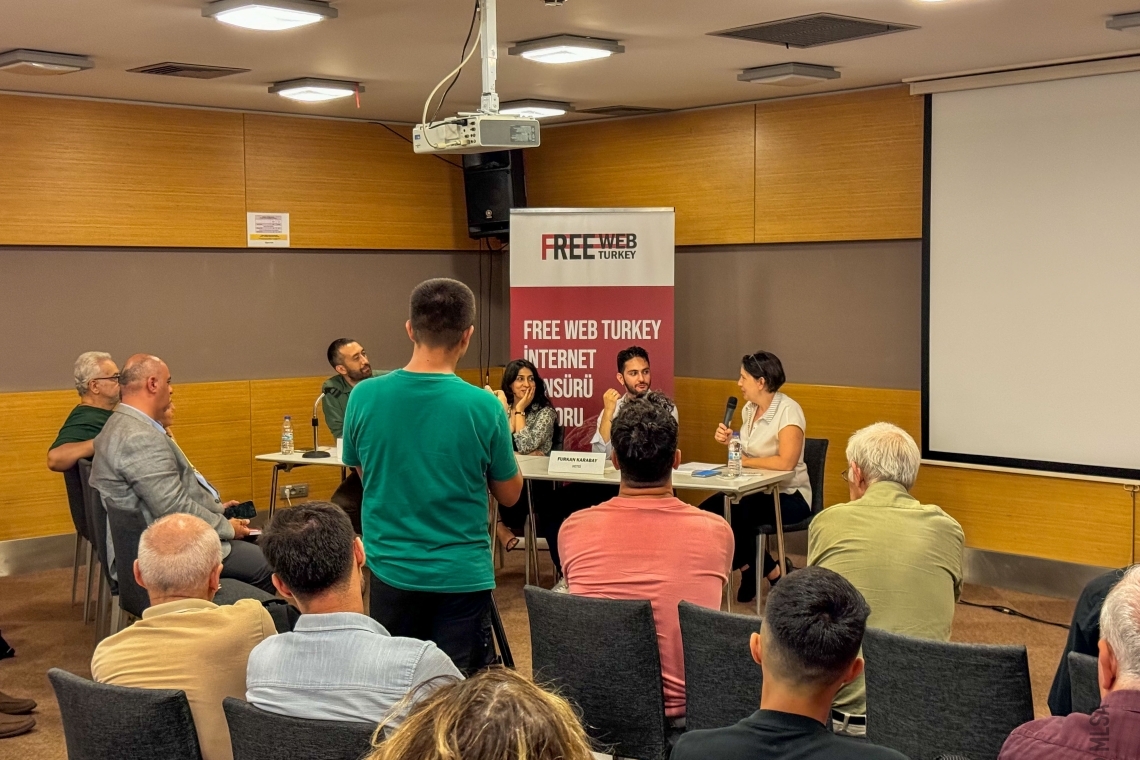The FreeWebTurkey 2023 Internet Censorship Report was presented to the public during the "Journalism Under Censorship" panel attended by censored journalists.
On July 12, the findings of the FreeWebTurkey 2023 Internet Censorship Report were revealed at an event in Istanbul. Following the presentation, journalists affected by access bans shared their experiences and observations during the "Journalism Under Censorship" panel.
Ok: We saw the impact of internet censorship during the earthquake
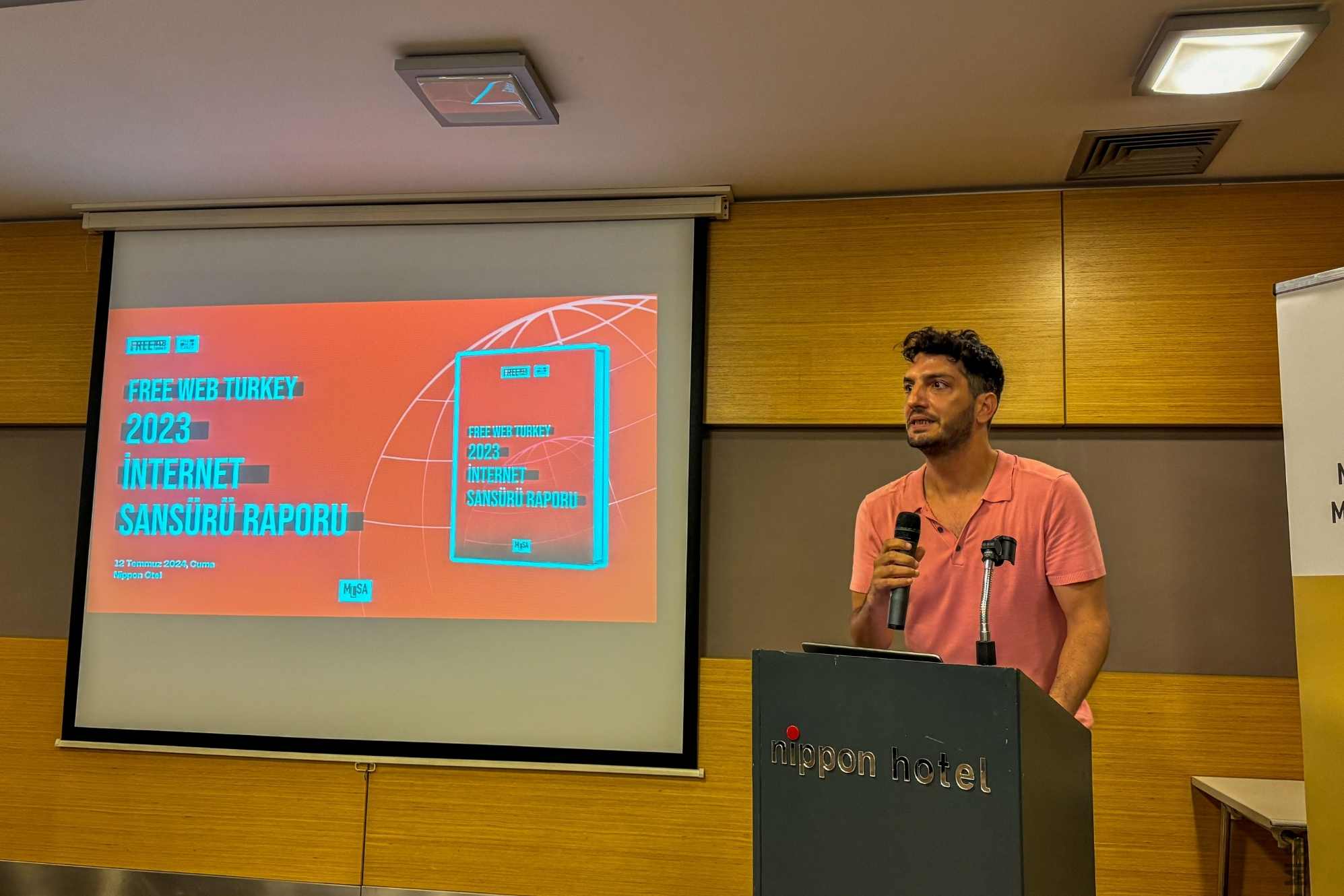
The event, which saw significant participation from the press and civil society, began with an opening speech by MLSA Co-Director Veysel Ok. Ok emphasized that access bans are a new form of censorship, highlighting how the February 6 Twitter ban showcased its potentially lethal consequences.
Over 200,000 domain names banned in 2023
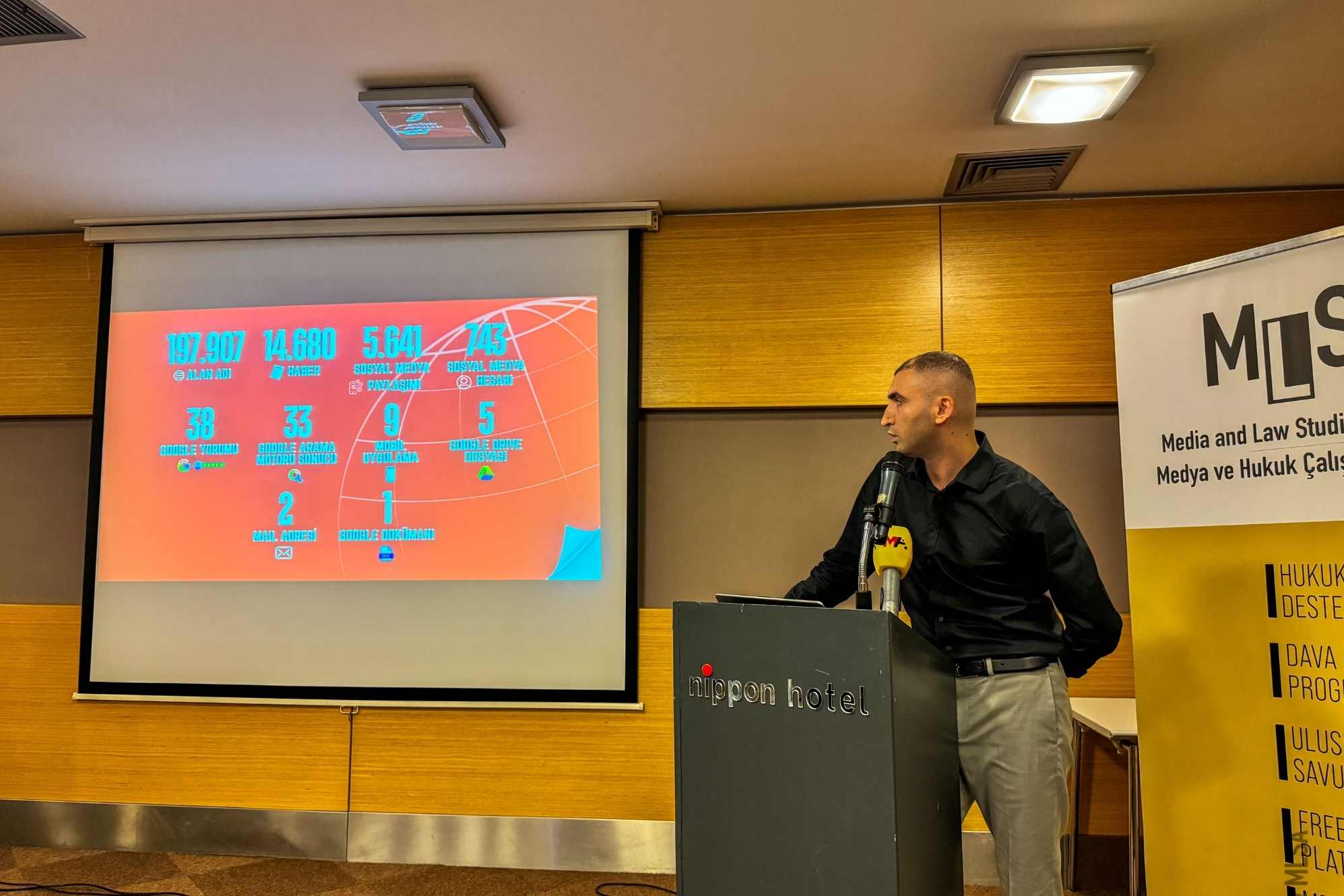
Following the opening remarks, FreeWebTurkey Project Coordinator Ali Safa Korkut shared the report's findings. Korkut stated that more than 200,000 domain names were banned in 2023, over 14,000 of which contained news content. He noted that the most frequently banned news stories involved President Erdoğan and individuals close to the AK Party.
Journalists discuss internet censorship
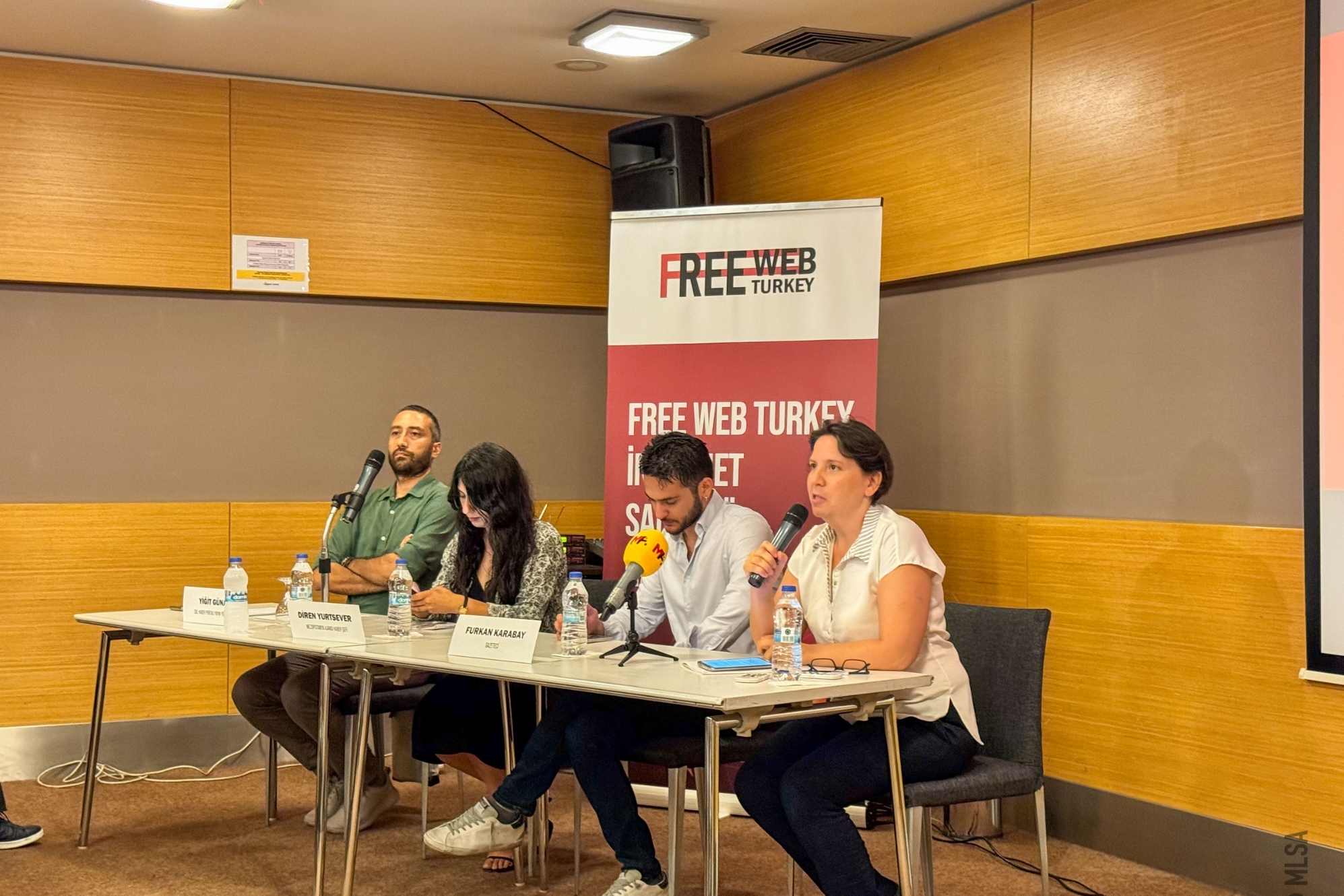
After presenting the report's findings, the "Journalism Under Censorship" panel, moderated by MLSA Co-Director E. Barış Altıntaş, took place.
Karabay: Being arrested amplified the news
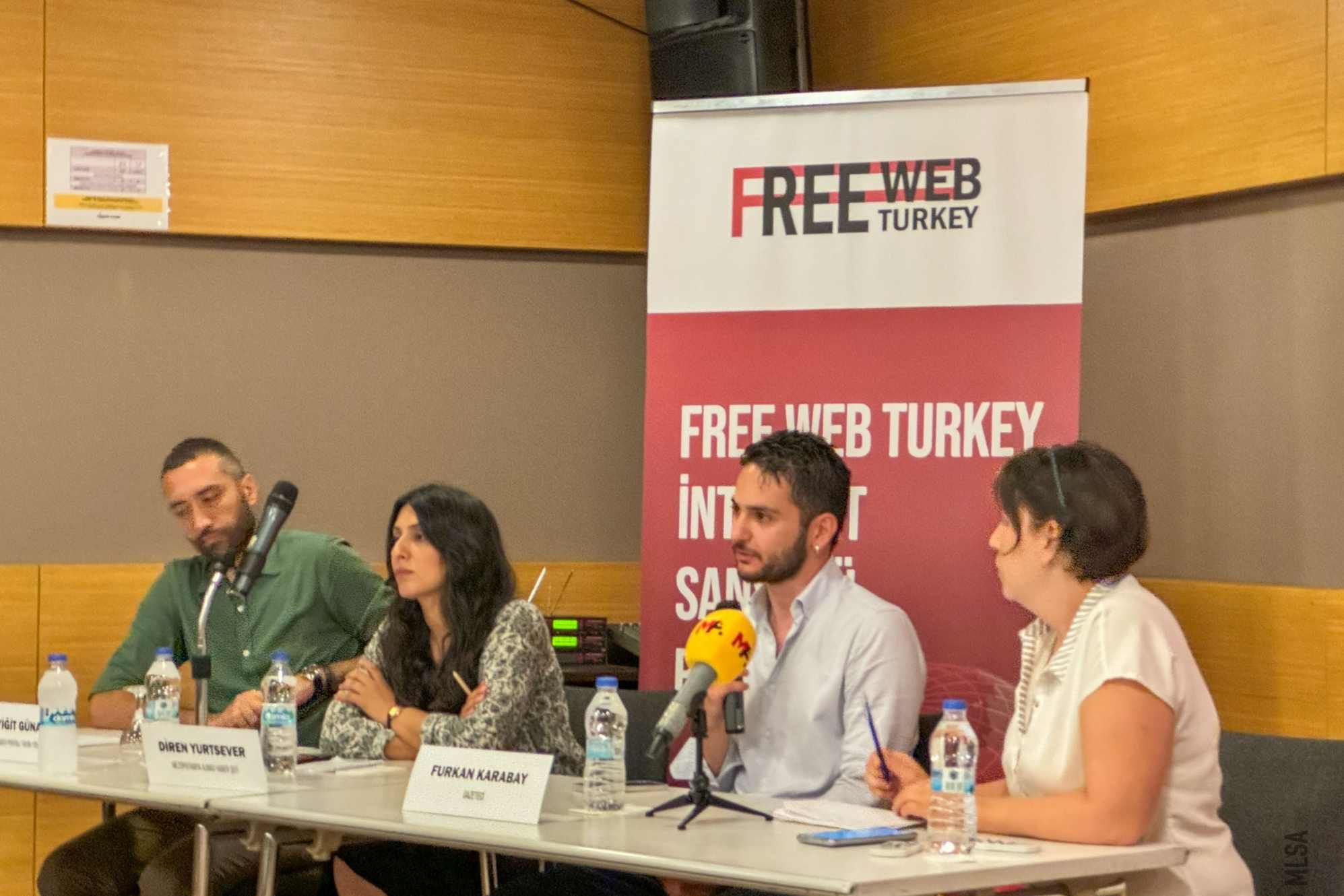
Journalist Furkan Karabay, who was arrested for six days in December 2023 after his report on public court records was banned and he was accused of "targeting individuals involved in anti-terrorism efforts," discussed his experience. Karabay stated, "Being arrested for my report amplified its reach to a larger audience, which was the opposite of what the government intended." He emphasized that access bans do not work, saying, "Access bans try to erase the truth, but the truth will always exist."
Yurtsever: Most bans target reports on regional human rights violations
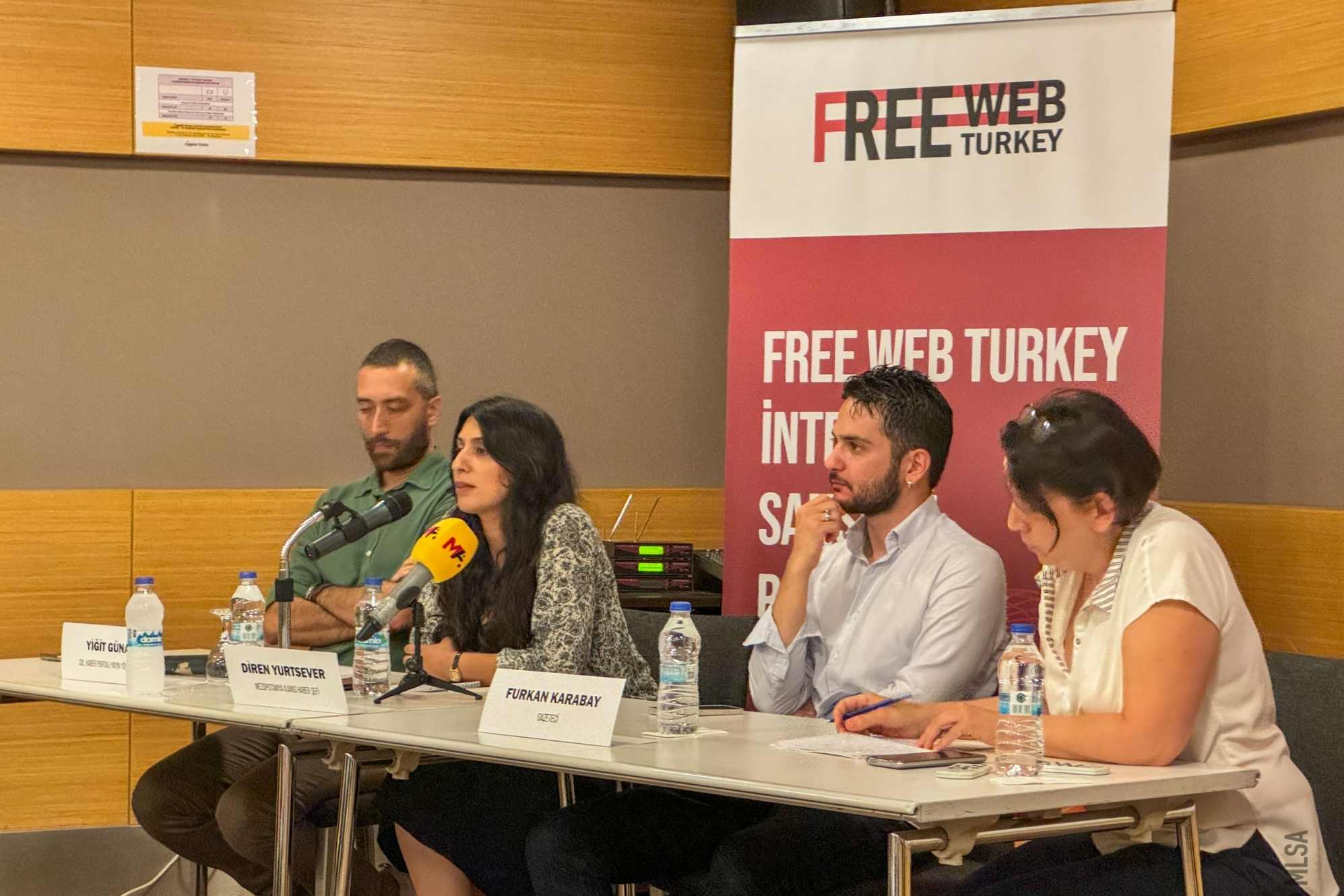
Following Karabay, Diren Yurtsever from Mezopotamya Agency discussed the access bans affecting her agency. She mentioned that the Mezopotamya Agency's website had been closed 35 times, with most bans targeting reports on severe human rights violations in the region.
Günay: Access bans are the least effective censorship method
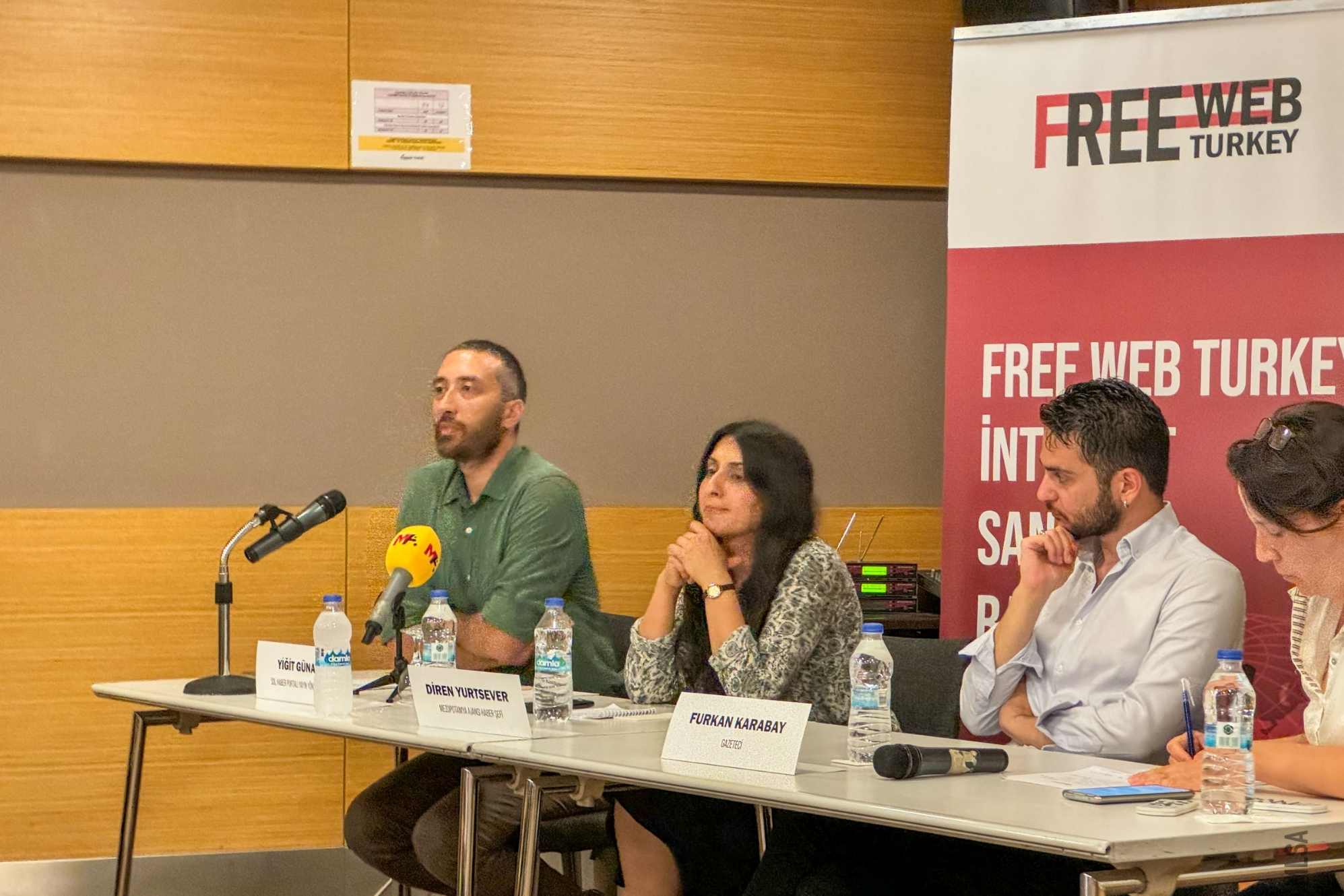
Yiğit Günay, Editor-in-Chief of soL News, which faced significant access bans, remarked, "We see the impact of censorship throughout the entire news production and distribution process," and added, "In terms of public access to information, access bans are the least effective method."
You can access the report here.
The event concluded with a reception following questions from the audience.


